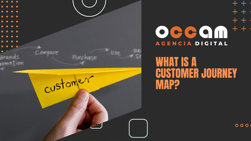Index Content
You will have heard a lot about SEO positioning and how to work on it, the most important aspects and the most common mistakes we tend to make. However, do you know what off page SEO and on page SEO are? Well, we'll tell you in this post!
Differences between off page SEO and on page SEO
Within the SEO positioning in which we can work to improve the situation of our website, we find two aspects on which we must focus. On the one hand we have the SEO off page and on the other, the SEO on page. Each of them will work with different characteristics, with the tools that each of them requires.
As we already know, SEO is a series of strategies and tools that ensure that our website has a good organic positioning in search engines, such as Google, thanks to improving both internal and external aspects that lead to our company's website.
Being well positioned in search engines helps other users to find our products and services during their searches on the internet, so that they get to know us and can become customers of our brand.
As we mentioned at the beginning, when we decide to work on SEO positioning, we have to review many aspects, as well as improve and correct whenever necessary. Therefore, it is important to know which aspects correspond to each type of SEO of the two we have mentioned in order to use the appropriate tools. In this way, we will act in the most optimal way to work with each of them.
On the one hand, we find off-page SEO, which is the one that deals with the "off-page" aspects. What does this mean? Well, it is simpler than it seems.
Off page SEO is about discovering what aspects are influencing the positioning of our website externally, i.e. what aspects are affecting our website positively or negatively. For example, having a high number of negative reviews will mean that our content will not be shown at the top of the search results. Or, on the contrary, if our website is being linked many times with quality content, our positioning on the Internet will be favoured and it will influence the authority with which our website is seen on the Internet.
If you are interested in knowing more about off page SEO, you can check here our post developing its main characteristics.
On the other hand, we have the SEO on page, which we are going to focus on throughout this post. The SEO on page is based on the aspects that we can control and work on directly from our company. For example, some of these aspects could be, as we have already mentioned above: the loading speed of our main page, the level of optimisation of the images, if there are a large number of duplicated or repeated elements, etc. That is, the SEO on-page analysis, as its name suggests, is about knowing the factors that are affecting internally and on which we can act directly.
what is on-page SEO?
As we have just mentioned, onpage SEO is about improving the internal aspects of our website so that it can be better positioned organically. This will directly influence our appearance in the main search engines, more specifically, among the top search results.
The aspects on which on page SEO focuses, and on which we can work to improve our brand's website, are:
- Keywords : This is one of the fundamental aspects that we must work on in order to have a good SEO positioning. It is important to choose appropriate keywords that fit with the message of our brand and what we are looking to sell through our website. As important as the main keyword is to choose LSI keywords, i.e. words from the same semantic field or that are related to our sector. In this way, by having many related keywords pointing to our website, we will have more chances of positioning ourselves as a quality website.
- Optimisation of titles: If we have a website with blog posts, we must choose appropriate titles that include the keyword we want to position ourselves with. It is also important that the subtitles or meta description are appropriate and include keywords.
- Image quality: When we have a website through which we want to sell our services or products, having images is very important. However, it is just as important to have images as it is for them to be of high quality. We need to place images that look very good quality, but at the same time are not too heavy, as users do not like it when they enter a link and the images on the site do not load.
- Loading speed: People are impatient by nature. When we enter a website, we do not like having to wait for the images or videos to take too long to load, the scroll we do on the web is too slow or we cannot see the content correctly from all devices (mobile or tablet). Therefore, we must update our content so that it can be viewed from anywhere correctly and with an optimal loading speed. Otherwise, users will leave our website and increase our bounce rate, which will directly influence the SEO positioning.
These are some of the basic elements on which SEO on page focuses, however, there can be many more depending on the website you want to position and how users respond to it. Therefore, you may think of other aspects of SEO on page that we have not mentioned and that you can work on to improve your company's website. The important thing is that, as you discover them, you work on them and strive to give the best possible quality to your page. In this way, you will succeed in SEO positioningWe know that it can be a long process in which your company will have to work and improve many aspects, but you know what they say, perseverance is the key to success. Courage!






